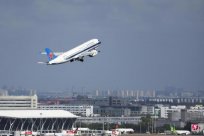The latest policy report of the Hong Kong Special Administrative Region Government will be released on Wednesday (October 16). Some political parties and industry insiders suggest that the Hong Kong government has lowered the liquor tax to stimulate alcohol consumption.The Hong Kong -controlled wine control alliance objected to this, thinking that this is equivalent to walking back, encouraging citizens to drink alcohol, which affects their health.
Comprehensive network media "Hong Kong" and Ming Pao reports, Cheng Zhuo Duan, the Volunteer Secretary of the Hong Kong Running Alliance and former assistant director of the Department of Health on Monday (October 14), said on a radio program, alcoholIt is a carcinogen. Existing evidence shows that alcohol is related to seven common cancers, which also causes high -risk diseases such as heart disease, hypertension and stroke, and affects mental health. Therefore, it is recommended that the government maintains a spiritual alcohol tax or consider improving spirits tax.
Cheng Zhuo Duan said that tax increases are an important means to prevent alcoholism of citizens. No matter how much tax cuts are reduced, it is also running counter to the government's promotion of prevention.
Hong Kong Legislative Councilor Li Haoran suggested that the government on the same program, reduced the spirits tax in three years, decreased by 30 % in the first two years.And economic effect.
Li Haoran believes that reducing the liquor tax and the per capita consumption, and the relevant diseases do not have an inevitable relationship. It is recommended that the government should take care of alcoholic people in addition to reducing alcohol taxes, or the needs of alcohol dependence on patients.Drink, set the hotline for those in need for help.
Bloomberg quoted people familiar with the matter in September that Hong Kong is planning to reduce the liquor tax.It is expected that this reduction will be a highlight of Hong Kong Chief Executive Li Jiachao in mid -October in mid -October.All wines with more than 30%of Hong Kong's current alcohol concentrations need to pay a tariff equivalent to 100%of its value, which is the highest level in the world.


